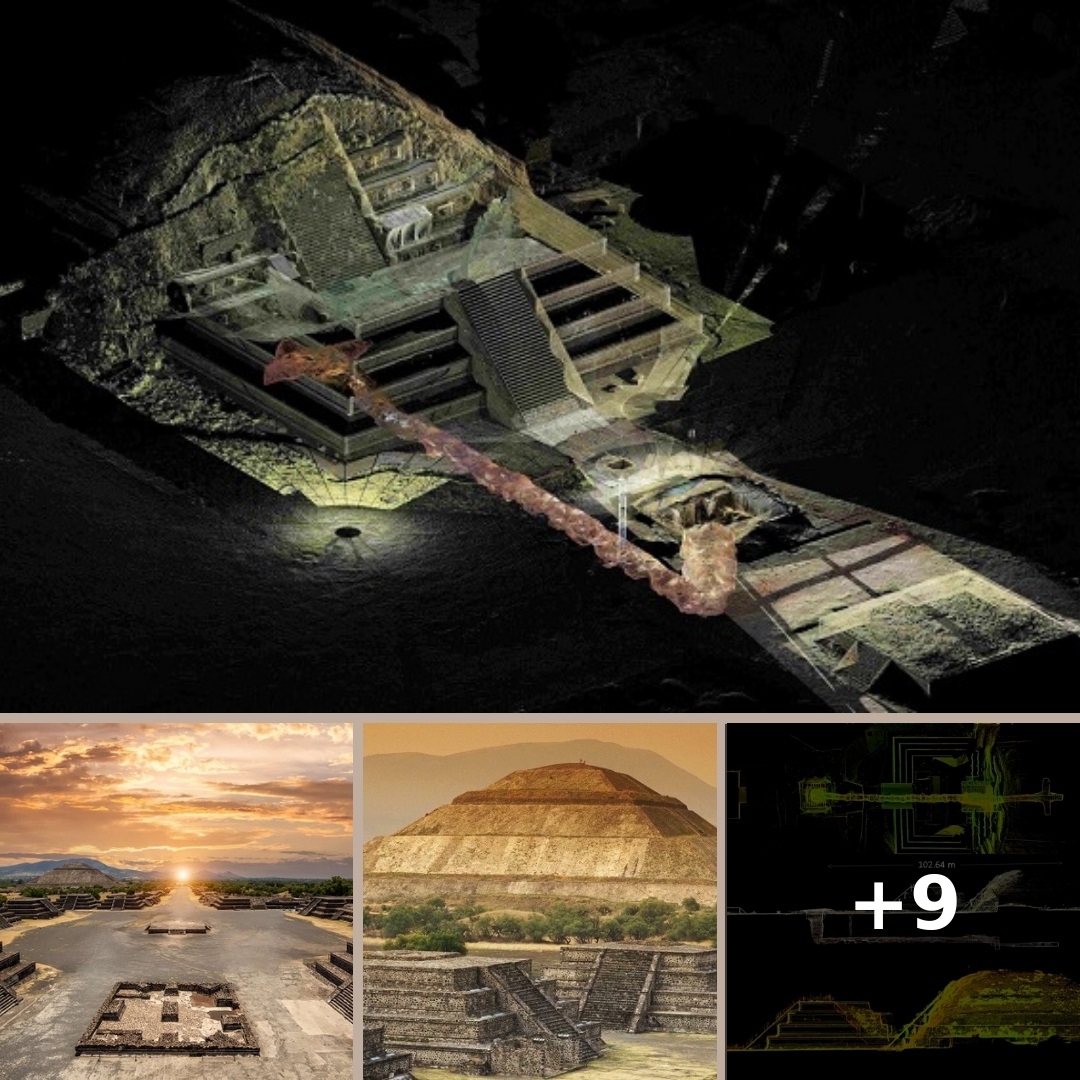Sacred chambers and liquid mercury found inside the underground tunnels of Mexican Pyramids could hold the ancient secrets of Teotihuacán.
Imagine discovering a secret tunnel hidden beneath one of the most ancient and mysterious archaeological sites in the world. Well, that’s precisely what happened in the Mexican city of Teotihuacán. The discovery of the secret tunnels brought new excitements and intrigue to the already fascinating site.
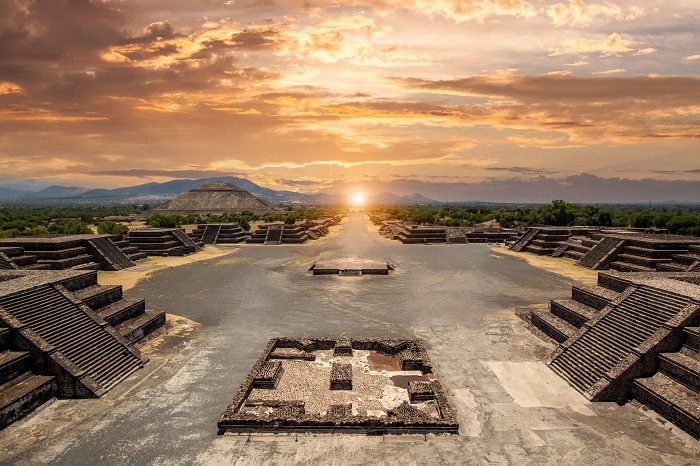
Teotihuacán is considered one of the most significant pre-Columbian Mesoamerican cities, dating back to 400 BCE. With its towering pyramids, intricate murals, and unique artifacts, Teotihuacán has long captured the imagination of historians and adventurers alike. And then, with the discovery of the secret tunnels, the site’s mystique only deepened. So what secrets might these tunnels hold? Who built them, and why were they kept hidden for so long? In this article, we’ll explore the fascinating discovery of the secret tunnels at Teotihuacán and the mysteries that lie within.
The ancient city of Teotihuacán
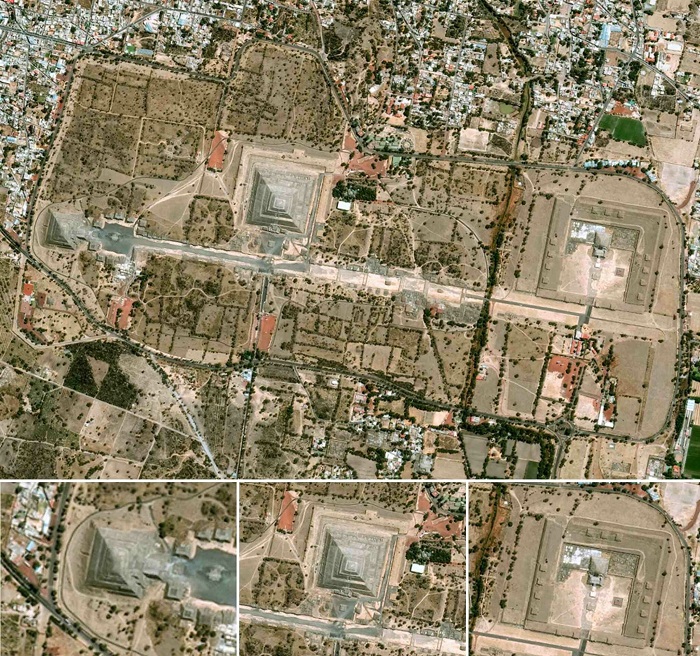
The ancient city of Teotihuacán, dubbed the “abode of the gods” in the ancient language Nahuatl, was once the nucleus of an empire. About 200,000 people are thought to have lived there between 100 and 700 AD, until its residents mysteriously hightailed it away. The city remained largely intact, but much is unknown about its people, how life flourished there and who was in the seat of power. Also unknown is whether power was passed down through a dynasty or if the ruler was an overlord.
Due to thick humidity and mud in the area, few excavations have been attempted at the site. The Spaniards did so in the 17th century, but no real progress was made until the 20th century.
Secret underground tunnels discovered in Teotihuacán
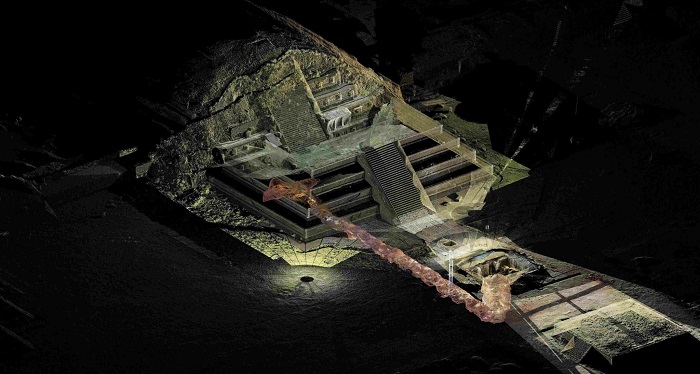
Researchers found three major tunnel systems in Teotihuacán, one below the Pyramid of the Sun, one below the Pyramid of the Moon, and one below the Feathered Serpent Pyramid (Quetzacoátl Temple); the last one is truly fascinating:
Tunnels underneath the Pyramid of the Sun
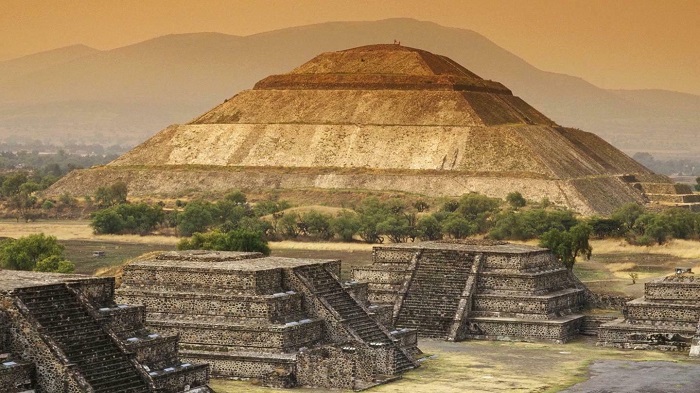
In 1959, archaeologist Rene Millon and his team of researchers were some of the first groups of archaeologists to study the tunnel system underneath the Pyramid of the Sun – the largest pyramid in Mesoamerica. While some of these tunnels were made after the fall of Teotihuacan and the Aztecs, they eventually connected to tunnels and caves that were made during the periods of these civilizations.
The investigations led by Millon revealed that most of the main tunnels were sealed off, and whether this was purposeful or not is up to interpretation. The tunnels underneath the pyramid gleaned pieces of pottery, hearths, and other meticulously made artifacts from other cultures that showed evidence elsewhere in Teotihuacán.
Millon and his team ultimately concluded from their research and excavation efforts that the pyramid was either built continuously over various periods of time by the people in Teotihuacán, or that the entire pyramid was built during one period of time with its foundation and cave system being made separately in an earlier period of time. The splitting of the time periods is due to different cultures having expressive influence in the artifacts found in the tunnels underneath the pyramid.
In 1971, archaeologist Ernesto Taboada discovered an entrance to a seven-meter-deep pit at the foot of the main staircase of the Pyramid of the Sun. The caves and tunnel systems underneath the pyramid were investigated by various archaeologists who have all concluded that these caves were sacred to those in Teotihuacan in the same way that caves were important cross-culturally in Mesoamerica.
Various sources point to different theories of interpretations for why the Pyramid of the Sun was built and what the cave systems underneath it truly mean according to the Teotihuacán people and culture. Some believe that the tunnel was used for religious ceremonies, while others believe it was an escape route for the city’s rulers.
Secret chamber and tunnel underneath the Pyramid of the Moon
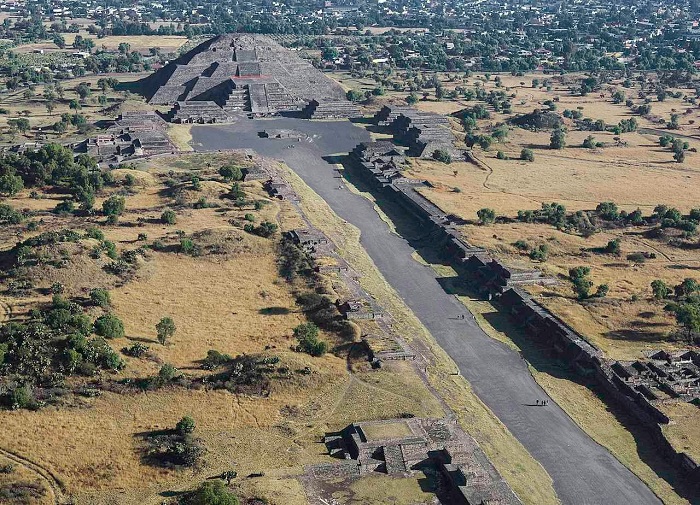
Archaeologists from Mexico’s National Institute of Anthropology and History (INAH) and the National Autonomous University of Mexico scanned the area of the Plaza of the Moon and the Pyramid of the Moon – the second-largest pyramid in Mesoamerica – in June 2017.
They have now confirmed there is also a chamber is eight meters (26 ft.) below the Pyramid of the Moon. It has a diameter of 15 meters (49 ft.), connects to the tunnel leading out towards the south of the Plaza of the Moon, and may have a western entrance into the chamber as well. These discoveries demonstrate that the people of Teotihuacan followed the same tunnel pattern in their largest monuments.
Tunnel underneath the Feathered Serpent Pyramid (Quetzacoátl Temple)
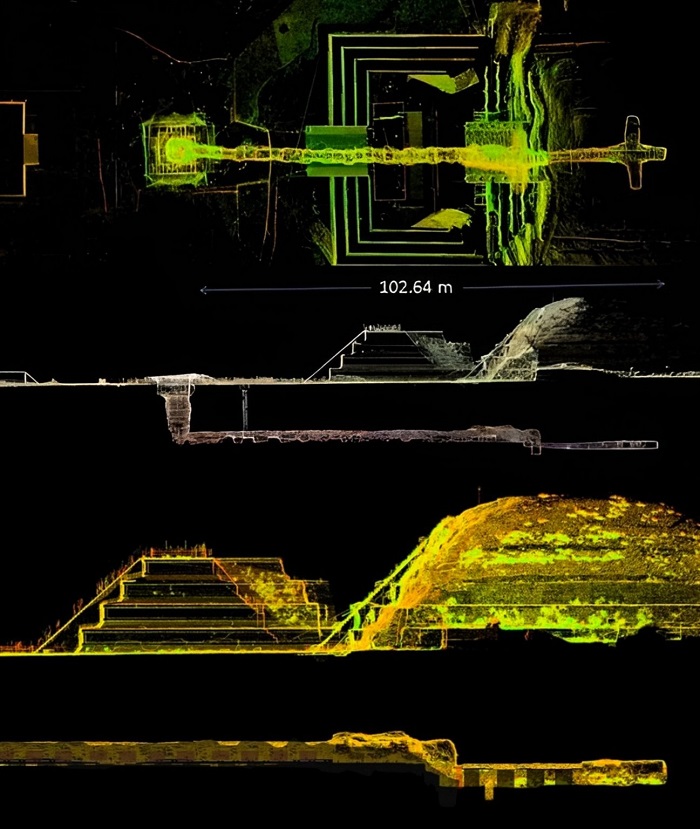
Archaeologist Sergio Gomez, who worked on the conservation of the Temple of Quetzalcoatl – the third-largest pyramid in Mesoamerica – in 2003, came across the tunnel with Julie Gazzola after a very heavy, days-long rainstorm. A nearly three feet wide sinkhole opened at the base of the Feathered Serpent temple and when investigated with a flashlight and rope it was found to be a man-made shaft. At the bottom of the shaft was a tunnel blocked in both directions by enormous rocks.
The first excavation pictures were taken by a small remote-controlled robot, although what it found along with the real artifacts recovered is just as fascinating!
Over 75,000 artifacts have been found while exploring this tunnel leading to secret underground chambers, including things such as a wooden mask inlaid with jade and quartz, greenstone crocodile teeth, a box of beetle wings, and hundreds of metalized spheres. These mysterious balls ranged in size from about 1.5” to 5” and were made with a core of clay and covered with a yellow jarosite that formed from the oxidization of pyrite. These spheres would have shone like gold when they were created. The use and meaning of these little gold balls is still completely unknown.
At the end of the tunnel, a chamber representing the underworld was discovered. This chamber deep beneath the pyramid’s center contained a miniature landscape with pools of liquid mercury representing lakes. The walls and ceiling were decorated with different mineral powders (hematite, pyrite, and magnetite) to create the spectacular effect of standing beneath the stars at night.
The temple of Quetzalcoatl is a real tourist destination and has suffered accelerated deterioration from the constant traffic. Conservation efforts are continuously being made to ensure its protection. The tunnel beneath it is still under excavation which is probably why visitors are not yet allowed. Many of the discoveries were made available in 2017 at a major exhibition at the De Young Museum in San Fransisco, California.
Final words
The existence of secret tunnels in the heart of the ancient city of Teotihuacán has long been a mystery. No one knows exactly how these tunnels were constructed, nor why they were built or what they might have been used for. It is possible that the tunnels were used by priests to travel secretly between the major temples, but no evidence has yet been found to support that claim.
The archeologists are now claiming that the tunnels are both a ceremonial and a ritual site. Although there is no proof that the priests of Teotihuacan used them for the same purpose as the priests of Chichen Itza in Mexico, the symbolism is similar. The tunnels are also thought to be the graves of ancients. For instance, archeologists found skulls, bones, and tools in the tunnel that were likely used by the priests of Teotihuacan.
In other words, a great deal of archaeological research is still needed in this ancient site to uncover more fascinating information about these mysterious tunnels and their true purpose.
